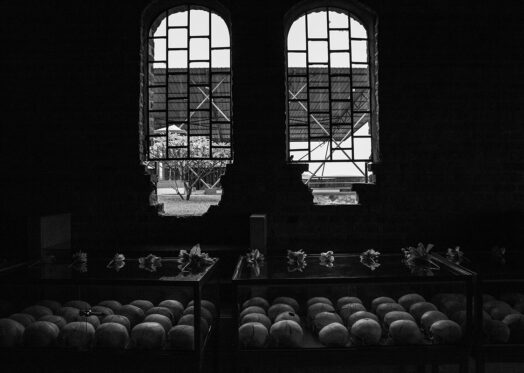Heart of Darkness

It was 30 years ago and I was just returned from Mogadishu. Two journalist friends, Ilaria Alpi and Miran Hrovatin, had been killed. I had to extract the bodies from their bullet-riddled Toyota and transport them to the old port, where a navy helicopter carried them aboard an Italian military vessel. So, I paid no attention to the first reports from Rwanda. But it soon became clear that something monstrous was going on.
Pictures and videos of horrifying massacres were coming in: piles of corpses, terrified people fleeing, Hutu militiamen mowing down civilians with machetes at checkpoints, women and children cut to pieces, burned alive in churches and in their homes. The rivers were filled with rotting bodies. My mind leapt to Kurtz's last words in Conrad's Heart of Darkness: “I seemed to hear the whispered cry, The horror! The horror”.
When I arrived in Rwanda months later, the genocide had been accomplished: one million dead, half a million women raped, millions mre who had fled to Congo, Uganda and Tanzania. No one had lifted a finger. The United States, reeling from its Somalia debacle, closed its eyes. The 2,500 U.N. troops, also crippled by the "Mogadishu syndrome”, stood and watched. France, which supported the Hutu regime, and Belgium, the former colonial power, were only concerned with evacuating their compatriots. The nights were thick with gunfire and fear. The streets were infested with bandits, armed gangs and angry soldiers of the new rulers, Tutsi militants of the Rwandan Patriotic Front led by Paul Kagame.
Today, as I walk the tree-lined avenues of Kigali, I see another country. Guilt-ridden Western countries have invested heavily in Rwanda, and the government has achieved remarkable results in education, health, services, infrastructure and the tourism industry. Exports of coltan, gold and diamonds - much of it smuggled in from the neighboring Democratic Republic of Congo, where the Rwandan army is embroiled in a brutal conflict over control of mineral resources - provide considerable hard currency revenues. But stability and economic growth come at a price.
The new regime, which is preparing to commemorate the 30th anniversary of the genocide, does not tolerate dissent. Journalists, youtubers and opponents have been jailed or forced into exile. Some have mysteriously disappeared. And next July Kagame will be re-elected president for the fourth time: a position he can hold until 2034 thanks to a constitutional amendment.
"Reconciliation" is the watchword that resonates in Kigali and at memorials established throughout the country to urge the population – mostly born after 1994 – not to forget. But the ghost of genocide still haunts Rwandan society. To this day, the hills, fields, swamps and mass graves continue to return hundreds of bodies and bone fragments. The pews of the Nyamata church drip with the bloodstained clothes of the victims, and endless rows of smashed femurs and skulls form a sinister mosaic on the floor.
Most of the 300,000 killers convicted by the courts have now been released from prison at the end of their sentences. Many have returned to live alongside the families of their victims. But not all have repented, and not all have been able to forgive.





